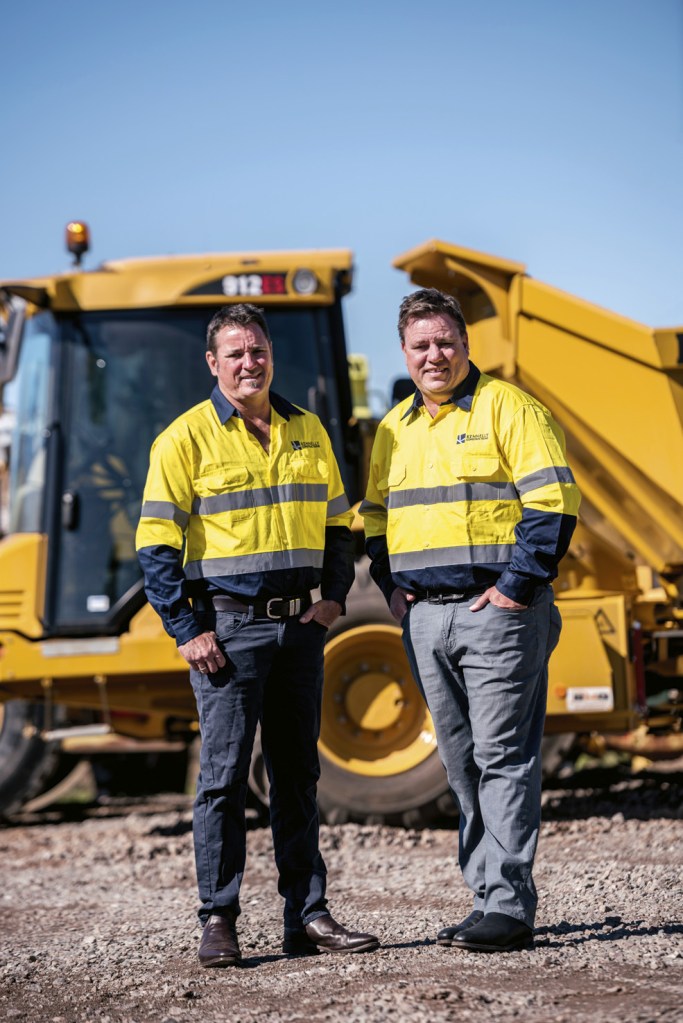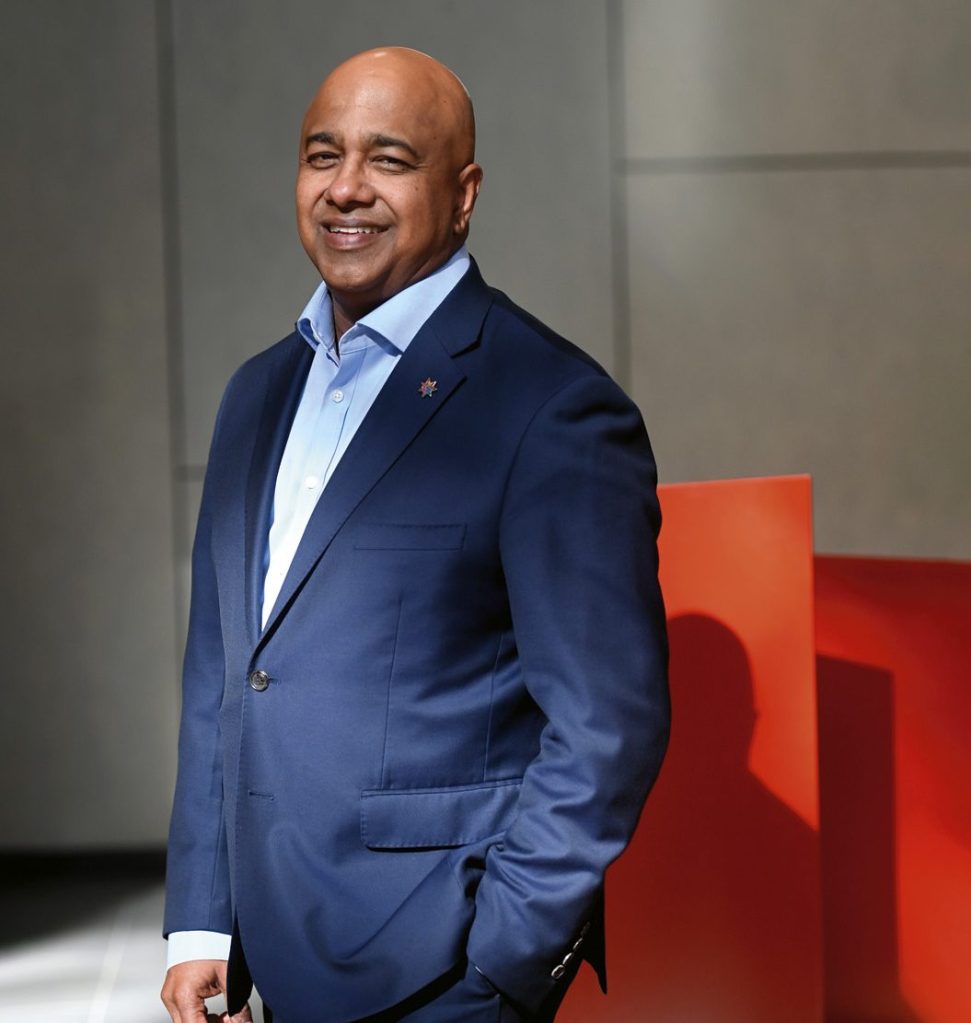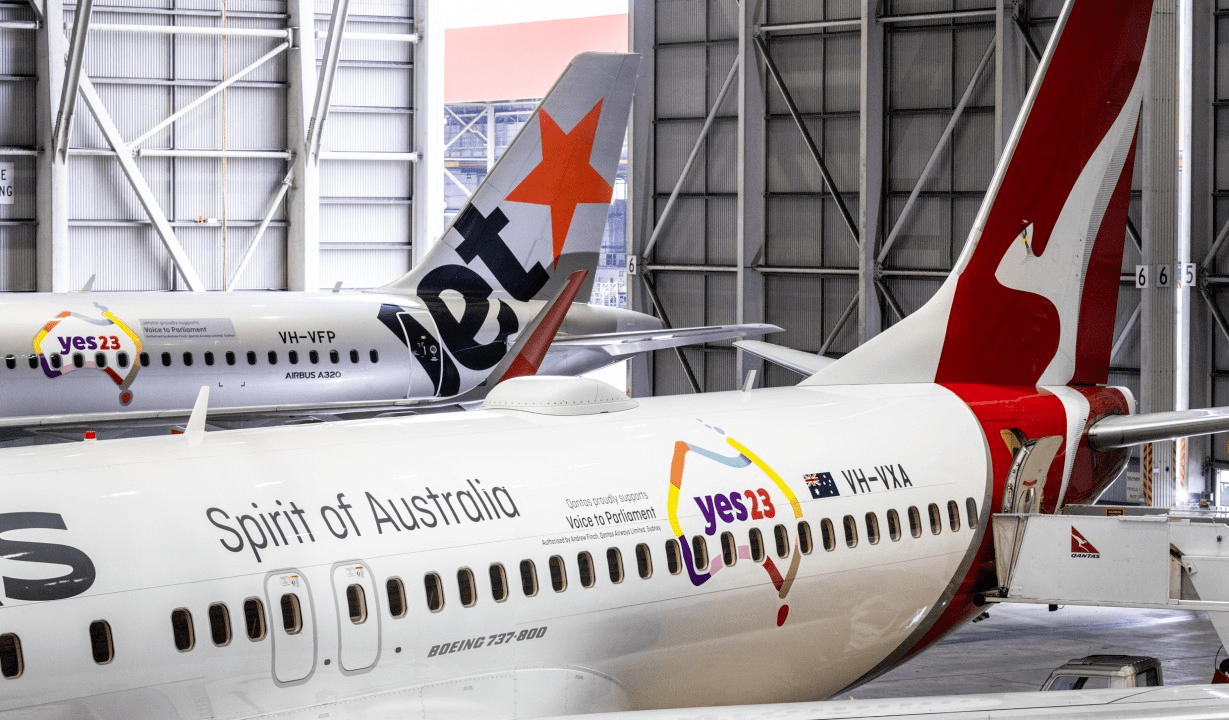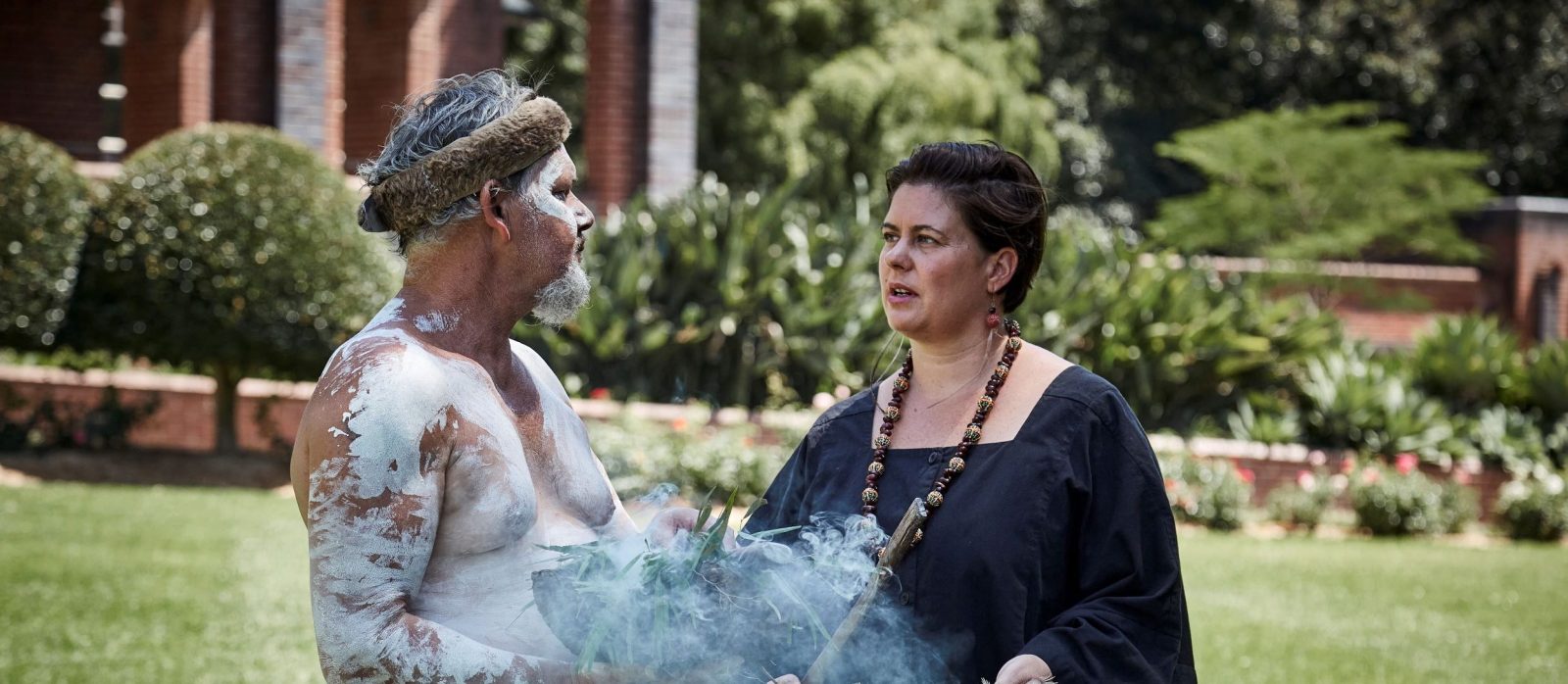The Indigenous business sector has experienced extraordinary growth in the 21st century, admittedly coming off a low base. Still, the achievements of the individuals who have built viable, strong enterprises are undeniable. Shivaune Field crunches the numbers and examines what needs to be done to continue growth in the sector.
This article was featured in Issue 8 of Forbes Australia. Tap here to secure your copy.

Shane Kennelly was 37 when he left his job and pursued the entrepreneurial path. The aeronautical engineer had been working for a publicly listed company and jumped at the opportunity to build his own plant hire business. The first roadblock was coming up with the funds to purchase the earthmoving equipment.
“We didn’t have assets to be able to secure a loan through a commercial bank. If the vendor hadn’t provided us with vendor finance, we wouldn’t be where we are today,” Kennelly says.
13 years later, Kennelly Construction, based in Forest Glen, Queensland on Gubbi Gubbi Country, turns over $30 million annually and delivers building and high-voltage electrical infrastructure for the Department of Defence. The path to setting up his business was not easy.
“Traditionally, the commercial banks have their risk and governance processes which, if the computer says no, there’s no flexibility in their products. You can’t get bank guarantees, you can’t get overdrafts, you can’t go and buy assets that will support the growth of your business,” says Kennelly.
He and his brother Adam, the co-founders of Kennelly Construction, are indigenous.
“In the late 60s, we weren’t even considered citizens of this country,” says Kennelly. “There have been many roadblocks to enable our people to start and set up their own businesses. We’re seeing such a rapid growth and rise of Aboriginal and Torres Strait entrepreneurs, and we don’t want what’s happened to us generationally to be a roadblock into the future.”
U.S. billionaire Jack Dorsey is looking to reduce the roadblocks that First Nations founders encounter when raising capital. Dorsey founded Twitter, Square, and Block – the parent company of Australian fintech unicorn Afterpay.
Dorsey announced in November that Block’s $100 million global social impact investment fund is contributing $3 million to Indigenous Australian founders. The investments will be made through Melbourne-based First Australians Capital, which will distribute funds to entrepreneurs looking to build their businesses.
“First Australians Capital is striving for financial inclusion and fairer access to capital for Indigenous businesses that have been left out by mainstream financial institutions,” says Dorsey.
NAB, Australia’s third largest bank, is also looking to do something about increasing access to capital for First Nations businesses. In October, the bank announced a target of lending $1 billion to Indigenous enterprises over the next three years. The bank has loaned $413 million to date. If it achieves its goal, NAB will increase its lending by 140%.

Noel Prakash is the head of Indigenous Business Banking and says that NAB currently has 1,500 First Nations business banking clients and is actively looking to grow that number by providing First Nations entrepreneurs with products tailored to meet their needs. The bank is also launching a network of specialised bankers to support First Nations businesses.
“We have culturally accredited 90 bankers across business banking, and we will look to grow these numbers,” says Prakash. “We are finalising partnerships with other corporates, governments and philanthropists to help provide access to the right kind of capital.”
According to NAB, it wants to be the bank that backs First Nations businesses.
“The biggest challenge in this market is access to capital for indigenous businesses,” says Prakash. He says innovation is needed because Indigenous founders often do not have generational wealth or real estate assets to secure business loans.
“The First Nations people starting businesses are the first or second generations since Indigenous people were even counted as part of the population,” says Prakash. “They are starting to work and buy homes but often have no generational or real estate assets to secure the capital.”
“We want to be able to provide capital into this market. When we lend to a business traditionally, we must meet certain security ratios,” says Prakash. “So, we are carving out a little bit of our balance sheet to be able to support these businesses. We are looking to bring in someone like the government to put up a guarantee.”
In this scenario, NAB would be shifting toward an equity model. “Traditionally, it is debt,” he says.
In addition to developing capital solutions, NAB is looking at funding research projects to understand better the kind of support required. This initiative will support Indigenous businesses and reflect stakeholders’ changing values and expectations.
“It’s a generational shift. We are seeing our interns and newer intakes asking us, ‘What is our contribution?’ regarding Indigenous engagement,” says Prakash. “The market is asking us to do it, and our shareholders are asking us to do it. Our staff are asking us too.”
It is unknown exactly how many Indigenous enterprises there are in Australia. Census figures suggest that there are just under 18,000 First Nations owner-managers. But Supply Nation – a non-profit organisation that aims to grow the Indigenous business sector – cautions that Census figures may be underestimating the number. Its ‘State of 2020 Indigenous Business’ report warns that Census data only counts Indigenous owner-managers and, therefore, does not represent other businesses that are not owned and managed by First Nations people.
According to the 2021 Census numbers, just 1% of Australian enterprises are owned by First Nations people. More than 25% of those businesses are in the Construction industry. A distant second is Healthcare and Social Assistance enterprises. The most underrepresented sector is Electricity, Gas, Water and Waste Services. The Mining, Information Media and Telecommunications sectors each represent just 1%.

Kennelly says the reason that Indigenous entrepreneurs gravitate toward construction has to do with the industries on which the government spends money.
“A lot goes toward infrastructure. One of the major spenders is the Department of Defence. We’re seeing a combination of aging assets and building-out of defense infrastructure on land, air, and sea.”
The 3% procurement policy was instituted to reflect the 3% of Indigenous Australians that are a part of Australia’s population. “The government use that as a benchmark target, but many departments are exceeding that amount,” says Kennelly.
The follow-on effect of the government’s procurement policy is that if corporations want to do business with the government, they too must adhere to 3% of the supply chain being procured from First Nations businesses.
First Nations Enterprises By The Numbers
- Between 2006 and 2016, the number of First Nations-owned companies grew by 72%, according to a DFAT report published during the pandemic.
- In the 2020/2021 financial year, $1.09 billion worth of goods and services were provided by Indigenous companies to Commonwealth departments and agencies.
- A PWC report published just before the pandemic estimated that in 2016: “Indigenous businesses contributed approximately $2.2 to $6.6 billion to Australia’s GDP, equating to 0.1% to 0.4% of total GDP”.
- The 2021 DFAT report found that: “A cohort of 24 Indigenous companies are already exporting services and goods into overseas markets – joined by 50 additional Indigenous-owned companies that see exporting as a part of their growth.”
- The PWC report found that 54% were owned and/or led by Indigenous businesswomen.
- An RBA bulletin last year projected growth in indigenous businesses would continue at a rate of 4% a year and says access to financial, social, and symbolic capital is key to helping future expansion. [A Deloitte report published in 2019 estimated revenues in the sector were likely to grow on average 12.5% per year.]
- The RBA bulletin also said that First Nations entrepreneurs still face substantial barriers to establishing a successful business. It called for better data to be collated to measure business viability and Indigenous employment within First Nations enterprises.
- Supply Nation has 4,400 First Nations-owned businesses listed in its database of suppliers, which employ 30,000 Indigenous Australians. It aims to connect First Nations suppliers with a database of 750 corporations, government departments, and other organisations. $3.8 billion changed hands between Supply Nation vendors and organisations procuring services, according to its 2021-2022 report. By 2028, it says procurement from its Indigenous-owned businesses will double to $8 billion, providing another 19,000 jobs to First Nations Australians.
Indigenous Business Australia
IBA is another organisation committed to expanding the number of First Nations-owned enterprises. It was created out of the 2005 Aboriginal and Torres Strait Islander Act and seeks to ‘promote and encourage Indigenous self-management and self-sufficiency.’ IBA is a federal government initiative supporting enterprises with finance, capability-building and professional services. Reports show that between 2017 and 2020, IBA provided $160 million of financial support to Indigenous enterprises.
IBA’s 2028 Strategic Plan aims to grow its net assets to $2.5 billion over the next five years to support 10,000 First Nations people. The organisation is committing $315 million to improve the outcomes for Indigenous Australians in 2024-2025 and up to $350 million in 2027-2028. One of the tenets of IBA’s Strategic Plan is to provide ‘innovative finance solutions’ to First Nations people, according to the CEO Kirsty Moore.
IBA Executive Director Sean Armistead says Aboriginal and Torres Strait Islander businesses are essential in the Australian marketplace and bring a wealth of knowledge based on over 65,000 years of existence. Armistead calls First Nations people ‘the original entrepreneurs.’
“The growth of our First Nations businesses in Australia and the broad range of sectors they operate [in] is incredibly exciting, but still needs support to grow in a market that previously locked them out,” Armistead says.
IBA’s work in growing Indigenous entrepreneurship is something Kennelly sees as a bright spot.
“IBA developed financial products that helped Aboriginal Torres Strait Islander businesses in constructions, particularly performance bonds. For most projects, you need to put up a performance bond that is held until you complete the project,” says Kennelly.
“In 2017-2018, we were going to be stifled for growth because we didn’t have the balance sheet or assets to enable the commercial banks to support us with those bonds. And IBA has that product now.”



